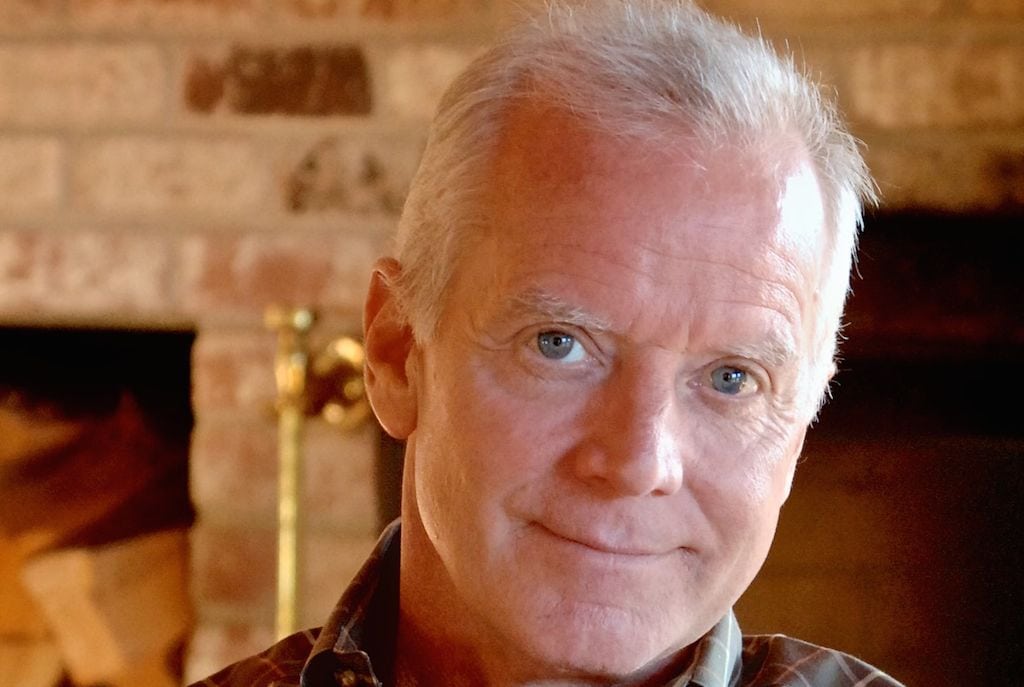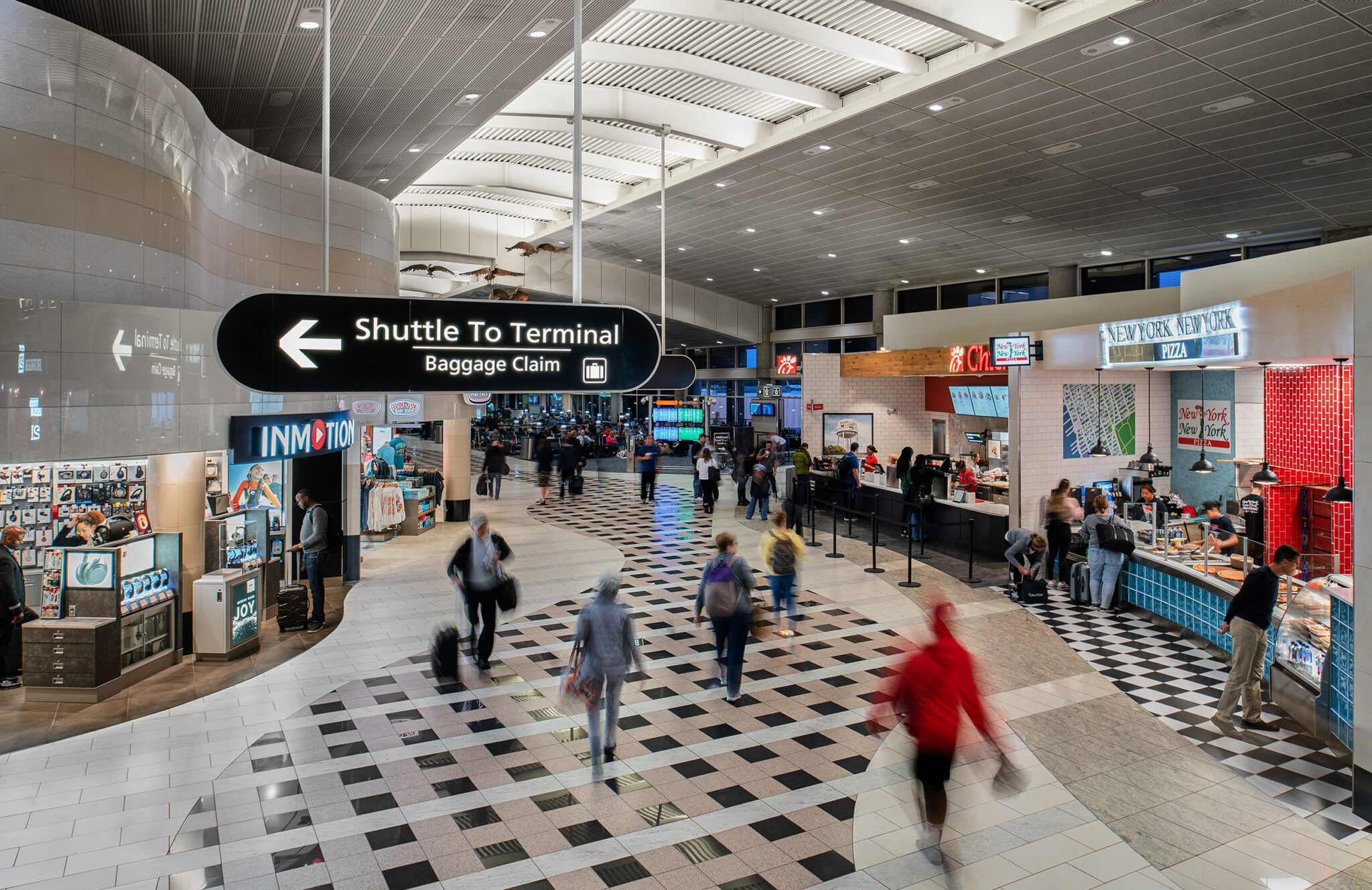Skift Global Forum: Virgin America Founding CEO Fred Reid on the Best Guest Experience

Skift Take
Fred Reid knows a thing or two about the airline business and passenger experience, and believes that "Virgin America has proven that technology + style + design + ease of use + people, people, people, people can launch an airline."
As the founding CEO of Virgin America, a post he left in late 2007, Reid says he banned the use of words such as "passenger" and "employee" in favor of "guest" and "teammate," and you'll see from the Skift interview below that he did so for substantive reasons that go to the core success or failure of an airline, and not just for public relations spin.
A business strategist who currently sits on the boards of Thayer Ventures and travel startup GetGoing, Reid has served as CEO of Virgin America, president of Delta Air Lines and Lufthansa, and also did stints at American Airlines and Pan Am.
Reid will speak at the Skift Global Forum: Defining the Future of Travel October 9 in New York City on "creating a radically guest-centric airline."
Get Your Ticket to the Skift Global Forum
Skift caught up Reid and spoke with him about his experience pitching Virgin America to investors, why he advised flight attendants from a rival airline to keep doing what they were doing, and the future of the airline passenger experience, among other topics.
Skift: You read all the time these days that airlines have to focus on cost-containment and rising fuel costs. How can they possibly make the passenger experience a more important element of their strategies?
Fred Reid: Right now airlines are in an absolutely unbelievable golden era, especially the U.S. carriers. It started a year or two ago and should run another year or two unless something really crazy happens. The long-term balance sheet health of the airlines has always been problematic, and I would say that cost-containment and cost pressures are not necessarily the other side of the coin of passenger experience. Unless you are flying planes where the seats are torn up or you haven't cleaned the planes in 40 days.
By the way, at Virgin America "passenger" is a prohibited word. It is never used. It is "guest." At Virgin America the words "employee" and "labor" never appear anywhere. It is "teammate." Passenger experience and employee experience -- I use the more common term even though I prohibited it at Virgin America -- they are hand and glove. Any airline that wants to have a good passenger experience better damn well be providing a great employee experience. Otherwise it will never happen. Most airlines forget that.
Skift: One might interpret what you are saying as being that an improved passenger experience is just a matter of "teammates" being nicer to their "guests."
Reid: It is a matter of employees caring about their employer. They must know that they want to take care of their guests for selfish reasons. I used to talk to thousands of employees about this for decades. Don't do it for me. Do it for yourself because if you are good, they will come back. And if they come back we'll be more prosperous. History shows that airlines that are reasonably prosperous do more for their employees than airlines that are not.
It's also a matter of recovering. Every airline is going to have a mishap -- FAA delays, weather delays, mechanical delays, flight cancellations. It is all about how you react to abnormalities. You haven't been on planet earth over the last seven years if you haven't received a minor setback and the airline did not communicate very well with you. And you are sitting there angry -- not because the flight is late -- let's say that you know there is a thunderstorm. But because the people who are trying to keep you warm, safe and happy while you are waiting don't give a crap about you. And it shows.
Skift: I can recall waiting at a gate some time ago and the gate agent seemingly gleefully went through a list of all the things we can't do while boarding or on the flight. It felt like fifth grade.
Reid: Let me tell you a real story. There's a flight delay and people are getting angrier and angrier. This lady at the counter gets on the microphone and says, "Hey, everybody. I am so-and-so. I live in Flushing, Queens, about an hour from this airport. I have two small children. I can barely afford baby-sitting. I'm going to go way into overtime on baby-sitting tonight. And let me just tell you something. I am not going to go home until after you are safely tucked in the plane, and the plane is safely in the air. I am going to be here longer than you are. I am not asking for your sympathy or your pity. I just want you all to know that I am doing everything in the world I can to get you on that plane, and I'm going to be here later than you. And, by the way, I know you are going to be inconvenienced by this delay, but so am I. So let's just consider ourselves on the same team here." And the people went crazy. They stood up, they applauded. They tried to give her cash tips, but she wouldn't accept them. That wasn't in her training. We didn't tell her to do that.
It's about being nice and how you recover from a situation when stuff goes sideways. I raised money for Virgin America in 2004 and it didn't fly until 2007. And I flew American Airlines back and forth because we didn't have any planes in the air. At the end of the flight I would go to the galley, where the flight attendants would retreat because they didn't want to have anything to do with the passengers. And they were reading People magazine and chewing gum, and I would open the curtain and say, 'Hi, I'm Fred. I used to work for American Airlines, and I'm starting a new airline, and I want to thank you all, and I want you to just keep doing everything you are doing. Just like you are doing it now.' And they thought that was a compliment. I never explained why I was saying that.
Skift: So besides airlines communicating better with passengers, and employees being nicer to passengers, what do airlines have to do concretely to be more passenger-centric? Is it more seats with extra legroom or less emphasis on fees? What other areas need to be addressed?
Reid: Next to Virgin America, Southwest, and JetBlue have great brand equity. They are wonderful. I've always said JetBlue, Virgin America and Southwest are all in one gang, they are brothers. But the best airline of the legacy world today is Delta by far, for a couple of reasons. They are taking the trouble to put televisions in every seat, which we [Virgin America] did years ago, and JetBlue did years ago. And Delta is getting into technology more, like Wi-Fi.
The actual seat pitch isn't that different over 20 or 30 years. It's just Americans are much fatter. Delta is offering a lot of choice. There is a lot of customization.
By the way, fees are here to stay. And the reason those fees are there is because airfares have dropped 1% to 2% every year for 40 years. Computing power, telephone costs and airfares are the grand bargains of the last 50 years. Delta offers a lot of choice, as do other airlines. You can buy an exit row seat. The long-haul airlines are going for a fourth class, which is economy premium. It costs a little more than economy and a lot less than business class, but it is demonstrably better.
You are not going to get 37 inches of seat pitch in every row of economy. Forget it. It is not going to happen because that airline would go bankrupt. But you can offer Wi-Fi, and what I call ease of use. Iin 2007 Virgin America put ordering your food on the screen in the sky. For example, if you are watching a movie or a football game, you pull up the menu, you just tap a beef sandwich, two beers, a pack of potato chips, a chocolate chip cookie, and a bottle of water. Then you slide your credit card and you hit enter, and it goes wirelessly to a screen in the kitchen.
Notice I called it a "kitchen" and I don't say "galley." I also imposed normal language at Virgin America. It is not a "lavatory, it's a bathroom." And the order shows up on the screen, and the teammate puts your order together and brings it to you. There's a beverage cart at the beginning of the flight, but for food they bring it to you as you order it, and it usually takes a minute or two.
Companies like Allegiant and Spirit are in your face, but their fares are so low that people still fly them. These are some of the things besides being nice, respectful, creative, and a little bit humorous during delay situations.
Skift: Skift recently did a poll with Amadeus and we asked passengers about the most important things to them about online booking in the future, and it was surprising to me that one of the least important things to respondents was "personalization." A lot of airlines are making a big deal about personalization. Is personalization the next horizon for airlines and the passenger experience or will their personalization drive fall flat?
Reid: I think it is the next horizon and my personal view is that so few airlines do personalization that the reason you got personalization as a low result is that people don't know what personalization is. Again, I point to Delta as being really good at personalization. Lufthansa is going there very fast. There are a few others. But personalization does matter. It's just that people don't know what it looks like yet.
Skift: You talked about airline consolidation earlier. Do you think there is still room for new entrant low-cost carriers in the U.S.? You've seen that PEOPLExpress just started a small operation with Vision Airlines.
Reid: To answer your question, yes, there are new models coming out. Subscription airlines like an all-you-can-eat buffet for a monthly fee. Surf Air is an interesting model. I don't know if it's going to work. It's innovative. They had a rough start and there is a team in there turning it around. Yes, there is room. Look at Airbnb. Who would have thought? Look at Uber. Who would have thought? Look at Facebook. Who would have thought?
It is not a rich environment for airline startups. I predict there will be companies some day that offer scheduled private jet service between the top 20 city pairs that have no nonstop service. With the retrenchment into hubs there are thousands of city pairs with no nonstop service. So why not put a private jet leaving every day at 9am and coming back at 5pm or vice versa? There's room. I don't think there is going to be a gigantic gorilla that is going to replace American Airlines anytime soon, but I do think innovation and startups are possible.
It takes a lot of creativity, and a lot of nerve and a lot of patience. Even when I was pitching Virgin America to investors they were laughing us out of the room, saying you've got to be kidding. We said it's not going to be a good airline; it's going to be the best airline in America. They would text their secretaries and say, please get me out of this meeting.
Virgin America has proven that technology + style + design + ease of use + people, people, people, people can launch an airline.
Get Your Ticket to the Skift Global Forum





